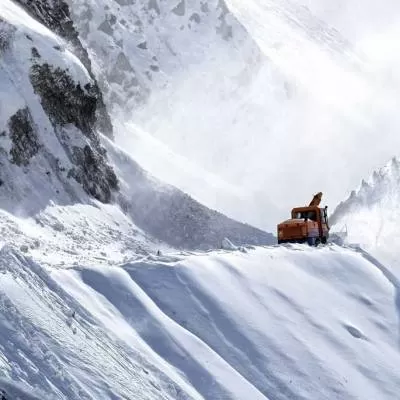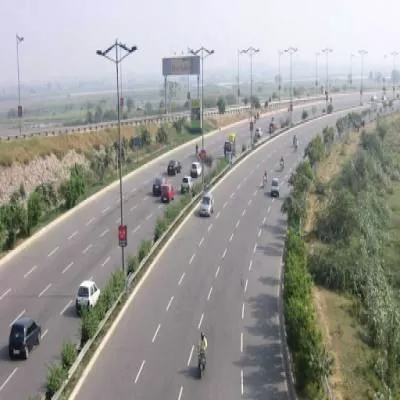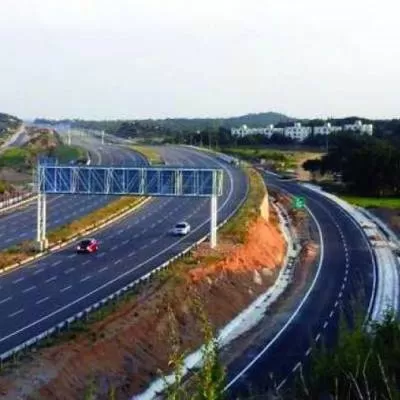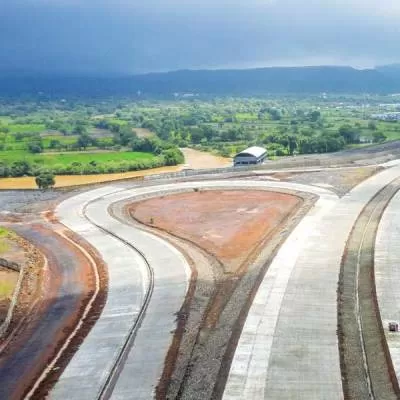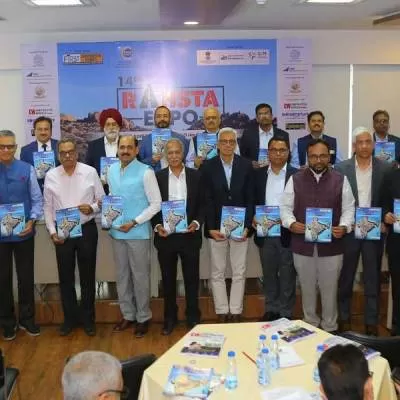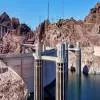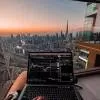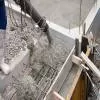- Home
- Infrastructure Transport
- ROADS & HIGHWAYS
- We lack the PPP model and it is the only way to get the job done.
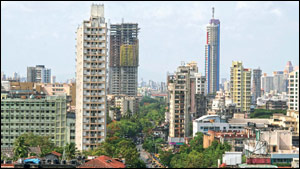
We lack the PPP model and it is the only way to get the job done.
Elected as an Indian National Congress candidate from the Lok Sabha constituency of Raiganj, Deepa Dasmunshi is the Minister of State for Urban Development. She was elected to the West Bengal state assembly in 2006. In conversation with CW, she shares her views on the challenges of urbanisation and provides an insight into JNNURM's plans.
Urban take: India is currently dealing with the problem of urbanisation; there is huge pressure on all our mega cities to deal with this crisis. People are migrating from villages to the big cities to obtain better jobs and, cities are getting saturated. All of us will agree that at this point of time, urban development is a state subject; we can only offer policies, planning and even suggest a number of engineers or people who can get the plan done. But to carry it forward is not in our hand. I recently interacted with people from Europe who are working towards managing urbanisation and taking initiatives to develop a greener city. We had a discussion with many research workers and delegations from the University of France. The Prime Minister has suggested that we should express our problems so that they can help us find a solution. Through these discussions, I discovered that the problems for almost all countries were the same: there is tremendous pressure on urban development. The only thing that is different is the population.
Smart living: Our government is taking the concept of housing seriously. We have created proposals like the Rajiv Aawas Yojana and other housing schemes for the middle income and economically backward groups. A different ministry called HUPA is looking after this and takes special measures for slum development. Then, there is the concept of a smart city. We tried to develop a smart city through Lavasa. Although we did not reach our goal completely, we are now trying to create small townships near a mega city and complete them with infrastructure and facility development.
Easing transportation: Everything moves in Mumbai except the traffic. We need better transport facilities. So, we thought of a rapid transport system including the metro and monorail. For this, we are in discussions with other foreign countries. Moreover, the condition of roads has become very bad after the monsoon. This is not just the case in Mumbai; it is a national issue. JNNURM has the funds. However, we have to discuss the matter with the Chief Minister or road development minister in the city. We have received many proposals from Mumbai and we are screening them. But it is the state-central relationship and partnership together that matters. Today, we lack the PPP model and this is the only model where one can get jobs done, where we will not lack in funds because companies and people will fund the project and there will be joint responsibility. The state government is not showing its eagerness to adopt the PPP model and this is the problem. Through the PPP model, we can sort out some projects or ideas and focus on them within two to three months with the support of the state government. The proposals can be submitted to us and we will respond as we have the funds.
Land acquisition: If land acquisition takes two to three years, the cost of the project will also increase. This is one case where we will have a problem releasing funds as land acquisition has been an existing issue. We are getting stuck owing to land acquisition problems such as clearing encroachment, which is a state subject. When the state government sends across proposals, we accept them and ask them to get the detailed project report (DPR) done. It is the state government's responsibility to implement the project. And at that point, it becomes a big roadblock as state governments are neither able to acquire land nor the project receives support from the people. Hence, it is not only the state government; citizens also need to participate one person or the government cannot be blamed.
JNNURM scheme: With the help of the UPA Government, we made a plan under the JNNURM scheme and identified basic amenities required for a big town or city. This scheme comprised water, infrastructure, sewage system, solid waste management and much more. In the case of Mumbai, this is a big challenge as the city is highly dense and one can see the presence of skyscrapers along with slums. The performance of JNNURM has been very good in some states while we are lagging in others. In states such as Bihar and Himachal Pradesh where urbanisation is less, we cannot expect a huge amount of work to be done, but in states like Maharashtra, it has been successful. Other states such as Tamil Nadu, Kerala, parts of Gujarat, Punjab and many others are showing their eagerness to get more proposals because proposals are now open and any state can submit them.
Flow of funds: At present, we have funds; hence, the JNNURM project that was planned till 2012 has been extended till 2014. In the first phase, Rs 50,000 crore was given and over 50 per cent of it has been used. In some states, they have not been able to utilise the first instalment. So now, at some point, they are saying we will continue and in some areas they are saying we will not. So we have to go in for new projects and proposals and we are open to them. In this one year, we have got many proposals from a few states. On the proposal front, Maharashtra has about 14 more works that have to be finished by this December. In terms of reform, it is a proactive state. Now, we are planning JNNURM 2 where we are focusing not only on mega cities but smaller municipal towns as well. These small townships have come up quickly and in Mumbai; MPs ask me about the various measures that can be adopted to solve the problem of water logging. We have not yet decided on the allocation of the budget for the second phase.
What's next!: With regard to JNNURM, we have suggested that it is not only about participation but a job opportunity too. It is a reform-oriented programme that focuses more on citizens' responsibility. For this, we are holding workshops, training and awareness programmes among many other activities. There are also proposals coming in from various countries for water recycling, solid waste recycling, and recycling of different components including plastics, etc. These are small projects with moderate budgets which can be implemented easily in small or big ways.
There are many other innovative ways in which ideas can be implemented; we are trying to do so. It is good that we are providing more funds to the city.
Deepa Dasmunshi, Minister of State for Urban Development Elected as an Indian National Congress candidate from the Lok Sabha constituency of Raiganj, Deepa Dasmunshi is the Minister of State for Urban Development. She was elected to the West Bengal state assembly in 2006. In conversation with CW, she shares her views on the challenges of urbanisation and provides an insight into JNNURM's plans. Urban take: India is currently dealing with the problem of urbanisation; there is huge pressure on all our mega cities to deal with this crisis. People are migrating from villages to the big cities to obtain better jobs and, cities are getting saturated. All of us will agree that at this point of time, urban development is a state subject; we can only offer policies, planning and even suggest a number of engineers or people who can get the plan done. But to carry it forward is not in our hand. I recently interacted with people from Europe who are working towards managing urbanisation and taking initiatives to develop a greener city. We had a discussion with many research workers and delegations from the University of France. The Prime Minister has suggested that we should express our problems so that they can help us find a solution. Through these discussions, I discovered that the problems for almost all countries were the same: there is tremendous pressure on urban development. The only thing that is different is the population. Smart living: Our government is taking the concept of housing seriously. We have created proposals like the Rajiv Aawas Yojana and other housing schemes for the middle income and economically backward groups. A different ministry called HUPA is looking after this and takes special measures for slum development. Then, there is the concept of a smart city. We tried to develop a smart city through Lavasa. Although we did not reach our goal completely, we are now trying to create small townships near a mega city and complete them with infrastructure and facility development. Easing transportation: Everything moves in Mumbai except the traffic. We need better transport facilities. So, we thought of a rapid transport system including the metro and monorail. For this, we are in discussions with other foreign countries. Moreover, the condition of roads has become very bad after the monsoon. This is not just the case in Mumbai; it is a national issue. JNNURM has the funds. However, we have to discuss the matter with the Chief Minister or road development minister in the city. We have received many proposals from Mumbai and we are screening them. But it is the state-central relationship and partnership together that matters. Today, we lack the PPP model and this is the only model where one can get jobs done, where we will not lack in funds because companies and people will fund the project and there will be joint responsibility. The state government is not showing its eagerness to adopt the PPP model and this is the problem. Through the PPP model, we can sort out some projects or ideas and focus on them within two to three months with the support of the state government. The proposals can be submitted to us and we will respond as we have the funds. Land acquisition: If land acquisition takes two to three years, the cost of the project will also increase. This is one case where we will have a problem releasing funds as land acquisition has been an existing issue. We are getting stuck owing to land acquisition problems such as clearing encroachment, which is a state subject. When the state government sends across proposals, we accept them and ask them to get the detailed project report (DPR) done. It is the state government's responsibility to implement the project. And at that point, it becomes a big roadblock as state governments are neither able to acquire land nor the project receives support from the people. Hence, it is not only the state government; citizens also need to participate one person or the government cannot be blamed. JNNURM scheme: With the help of the UPA Government, we made a plan under the JNNURM scheme and identified basic amenities required for a big town or city. This scheme comprised water, infrastructure, sewage system, solid waste management and much more. In the case of Mumbai, this is a big challenge as the city is highly dense and one can see the presence of skyscrapers along with slums. The performance of JNNURM has been very good in some states while we are lagging in others. In states such as Bihar and Himachal Pradesh where urbanisation is less, we cannot expect a huge amount of work to be done, but in states like Maharashtra, it has been successful. Other states such as Tamil Nadu, Kerala, parts of Gujarat, Punjab and many others are showing their eagerness to get more proposals because proposals are now open and any state can submit them. Flow of funds: At present, we have funds; hence, the JNNURM project that was planned till 2012 has been extended till 2014. In the first phase, Rs 50,000 crore was given and over 50 per cent of it has been used. In some states, they have not been able to utilise the first instalment. So now, at some point, they are saying we will continue and in some areas they are saying we will not. So we have to go in for new projects and proposals and we are open to them. In this one year, we have got many proposals from a few states. On the proposal front, Maharashtra has about 14 more works that have to be finished by this December. In terms of reform, it is a proactive state. Now, we are planning JNNURM 2 where we are focusing not only on mega cities but smaller municipal towns as well. These small townships have come up quickly and in Mumbai; MPs ask me about the various measures that can be adopted to solve the problem of water logging. We have not yet decided on the allocation of the budget for the second phase. What's next!: With regard to JNNURM, we have suggested that it is not only about participation but a job opportunity too. It is a reform-oriented programme that focuses more on citizens' responsibility. For this, we are holding workshops, training and awareness programmes among many other activities. There are also proposals coming in from various countries for water recycling, solid waste recycling, and recycling of different components including plastics, etc. These are small projects with moderate budgets which can be implemented easily in small or big ways. There are many other innovative ways in which ideas can be implemented; we are trying to do so. It is good that we are providing more funds to the city.


